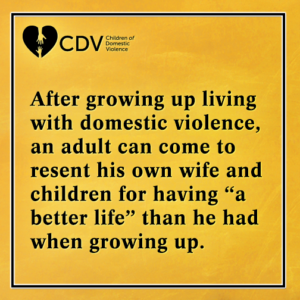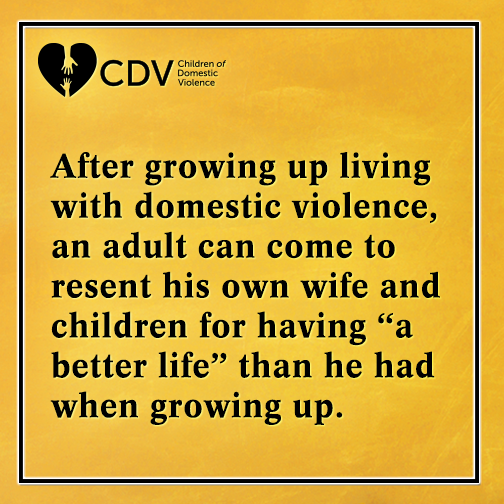By Brian F. Martin, Author of INVINCIBLE
It is common to feel some sense of RESENTMENT after growing up experiencing adversity in childhood. The origin of your RESENTMENT may surprise you, however. There’s no better way to demonstrate this than through the story of Marina, who survived the bitter resentment towards growing up experiencing adversities in childhood to eventually achieving compassion and immense personal joy.
It is impossible for a person to be happy when she still harbors resentment
It is next to impossible for a person to be happy when they still harbor RESENTMENT toward themselves or others. Marina’s story shows that the LIE of RESENTMENT learned growing up with domestic violence can hold you hostage and become a vicious cycle, inherited across generations, just like the violence that causes it.
My hope is that in exploring this with you, we will shed light on the pervasive lies that lead to resentment and, in time, be able to release the lies and embrace the TRUTH: COMPASSION. For only compassion – not resentment – can lead you into the life of happiness you deserve.
Her early childhood was full of laughter
The first few years of Marina’s life in rural Argentina were in many ways ideal. Her early childhood was full of laughter, family feasts, warmth and security. Her mother, grandparents, uncles, aunts and cousins played together, ate together, protected each other, and cherished the presence of this bright-eyed, inquisitive little girl.
They taught her everything she needed to know about familial love. They were so close, she even shared a bed with her grandmother who, along with a beloved uncle, helped raise her while her mother was away at work.
He was determined to show everyone that he was somebody to be reckoned with
Marina’s dad, Raoul, had left just months after she was born to seek his fortune in America. Her parents hadn’t known each other very long, and Marina wasn’t planned. They got married because “in a small town in Latin America, that’s what you did when you got pregnant.” But her dad decided it was best to try his luck in the land of opportunity. His own family was poor and uneducated, so he was determined to prove his worth and show everyone that he was somebody to be reckoned with.
Her mother wrote to her father and asked for a divorce
By the time Marina turned 6, her mother wrote to her father and asked for a divorce. It seemed obvious he was never going to be a part of the family picture back in Argentina, so it was time to make that official.
Marina’s dad pleaded with her mother to come to the United States and bring Marina. He told her he was ready to provide a comfortable life for his wife and daughter, and wanted to try to be a family. Marina’s mom decided it would be unfair to her daughter if she didn’t give her a chance to get to know her birth father, so she agreed.
“She didn’t want to have me grow up without a father and have me ask about him later in life,” Marina explains. “She didn’t want me to live without that experience and regret it later.”
It was the beginning of a joyless upbringing
By this time, Marina’s mom didn’t feel much for the man, but at least, she thought, he was trying to do the right thing by his family. An education in America for their daughter would be an added bonus. Marina’s father had fulfilled his ambition and become a success, establishing a thriving catering business in the Northeast.
It should have been a fresh start filled with promise. Instead, it was the beginning of a joyless upbringing full of emotional abuse that bred sadness, bitterness, and resentment.
He resented his wife and daughter for having a “better life”
Marina’s father experienced adversity in childhood as well. As an adult, he wasn’t physically violent toward his family, though. He prided himself on never laying a hand on them and reminded them of this fact often, as if Marina and her mother should consider themselves lucky that they weren’t being hit. However, his words and other actions were purposely chosen to cause pain in another way.
 Although he considered himself superior to his own father because he wasn’t physically abusive, his put-downs and reprimands were as constant as they were harsh. It was as if he resented his wife and daughter for having a “better life” than he had had himself.
Although he considered himself superior to his own father because he wasn’t physically abusive, his put-downs and reprimands were as constant as they were harsh. It was as if he resented his wife and daughter for having a “better life” than he had had himself.
You can now choose compassion and end the vicious cycle
Resentment flows in many directions, as we can see here. Had Marina’s father shown compassion to his wife and child, rather than resenting them for suffering less than he had suffered, he could have broken the cycle of suffering. This is the origin of resentment and also the secret to healing it. Since Marina’s father could not show compassion, it would now be up to Marina to find a way to transform her inherited resentment into compassion.
If you came to resent one or more adults in your household, perhaps you too can now look deeper and see how their behavior may have been the result of inheriting resentment in their own life. The greater gift of this awareness is to know that you can now choose compassion over resentment and end the vicious cycle.
Please share in the comments below if you know your parent or guardian’s story about how they grew up? Did they also grow up facing adversity in childhood and struggled with resentment, perhaps handing it on to you as a right of passage?
A detailed overview of the GUILTY LIE, as well as Marina’s full story can be found in CHAPTER 3 (“Resentful to Compassionate”) of INVINCIBLE: The 10 Lies You Learn Growing Up With Domestic Violence and the Truths to Set You Free.
Learn more about Brian F. Martin, author of INVINCIBLE and founder of CDV on Google Plus

